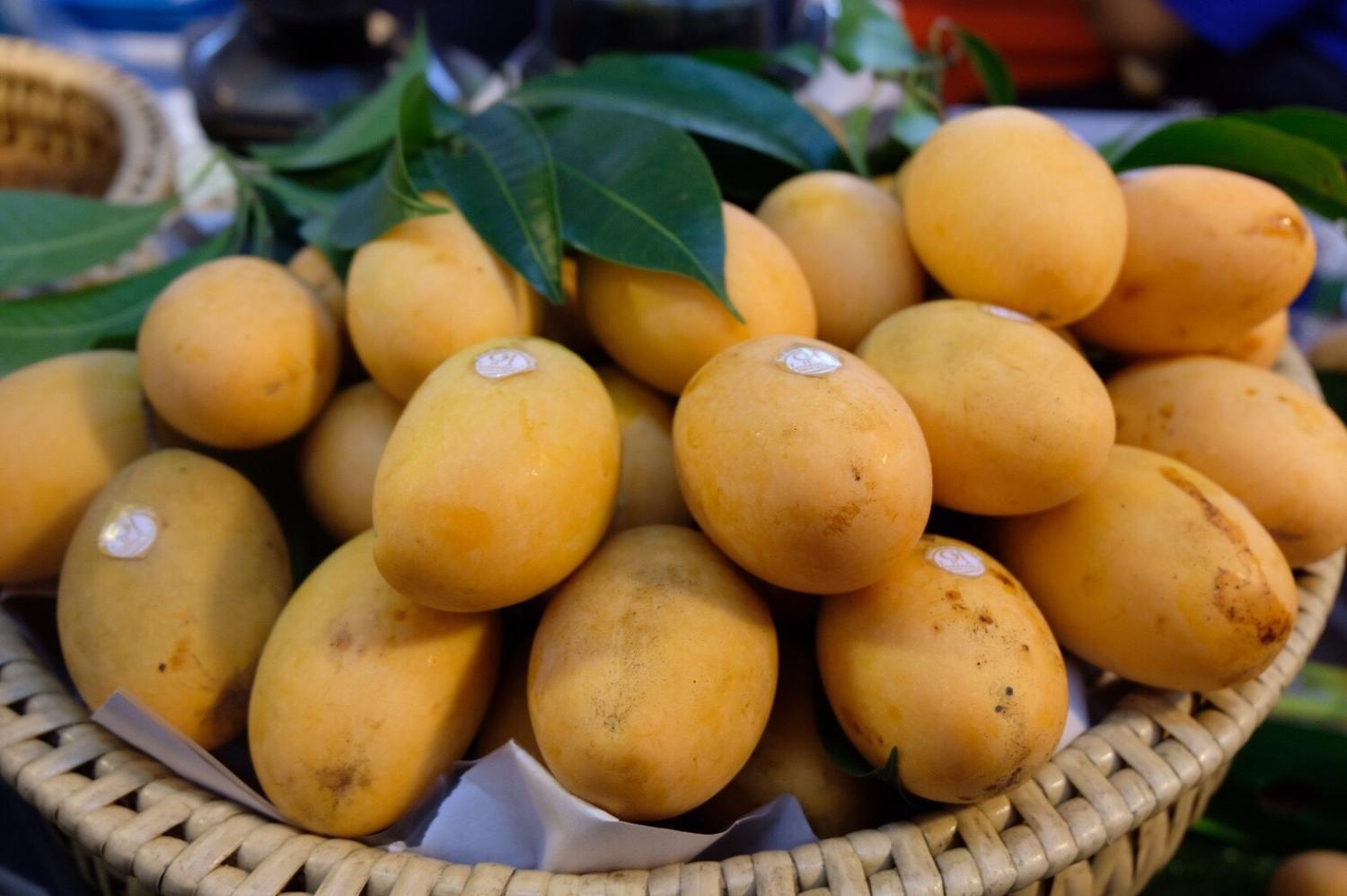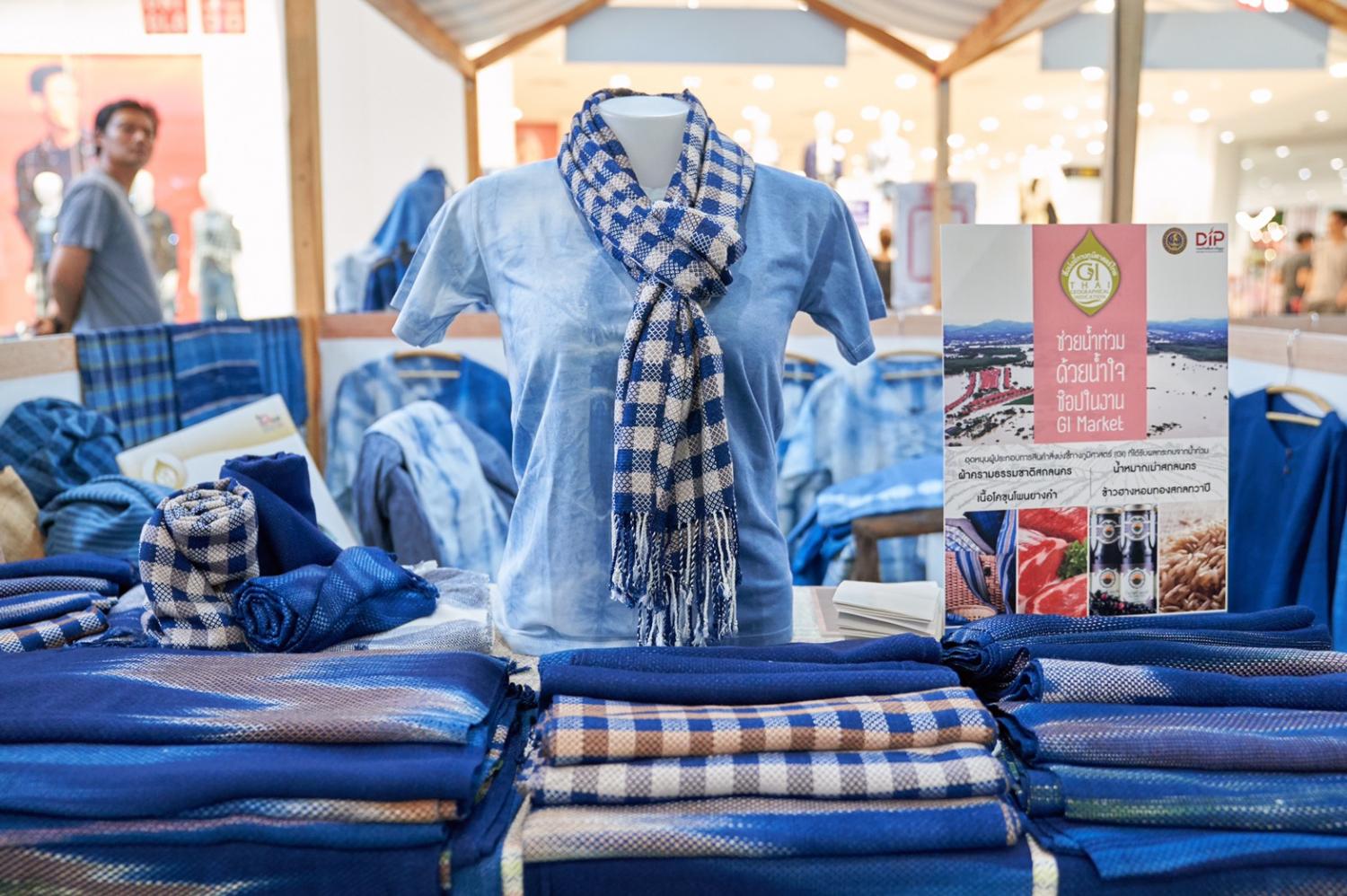
The government is committed to developing and promoting geographical indication (GI) products in every province this year to generate income for communities.
Thosapone Dansuputra, director-general of the Intellectual Property Department, said the government has succeeded in developing GI products in 75 provinces as of last year, generating sales worth more than 5 billion baht.
Currently, only Pathum Thani and Ang Thong have yet to register GI products. Pathum Thani has already submitted GI registration for Hom Thong Pa-Thum bananas, while Ang Thong has proposed registration for the Ekkarat drum with the department, Mr Thosapone said.
GI is a distinctive certificate used to identify a product as originating from a particular country, region or locality that has specific qualities, reputation or other unique characteristics.
The certification of unique characteristics and quality is expected to increase market value in developed countries.

Thosapone Dansuputra, director-general of the Intellectual Property Department. Bangkok Post
As of January this year, there were 228 applications for GI registration, 135 of which were approved and certified by the department. Of the 135 certified GI projects, 118 are indigenous products and 17 are foreign products.
"We hope to have GI products from all 77 provinces in the first quarter of this year," Mr Thosapone said.
In a move to promote GI products nationwide, the cabinet on Feb 18 last year ordered the Interior Ministry to support and promote each province developing GI products to generate income for communities and add value to local products.

Thap Sakae coconuts.
The state aims to raise sales from GI products to more than 30 billion baht by 2024 while linking GI to tourism. GI product sales topped 5.2 billion baht last year, up from 4 billion baht in 2018 and 3.7 billion baht in 2017.
Mr Thosapone said the department expects sales volume to increase by at least 300-400 million baht this year.

Sakon Nakhon's natural indigo-dyed fabric.
Thailand has GI registration for six products in foreign countries: Thung Kula Rong Hai hom mali rice, Doi Chaang and Doi Tung coffee and Sangyod Muang Phatthalung rice in the EU; Lamphun brocade Thai silk in India and Indonesia; and Isan indigenous Thai silk yarn in Vietnam.
Thailand has already filed GI applications in China for Thung Kula Rong Hai hom mali rice, Phetchabun sweet tamarind and Tubtim Siam Pak Phanang pomelo.
In Japan, Thailand has filed for GI registration of Doi Tung and Doi Chaang coffee and Uttaradit's Huay Mon pineapple.
In Vietnam, the Thai government has filed and is awaiting registration confirmation for Phetchabun sweet tamarind and Lamphun golden dried longan. GI confirmation is also expected for Doi Tung coffee in Cambodia.

Thailand has filed GI applications for several products in China, including Tubtim Siam Pak Phanang pomelo.
Applications are being drafted for GI registrations for Durian Prachin and Ratchaburi aromatic coconut in China, and Sangyod Muang Phatthalung, Tubtim Siam Pak Phanang pomelo and Thung Kula Rong Hai hom mali rice in Malaysia.
There are 17 foreign products with GI registration in Thailand, mostly from Italy, Vietnam and France.
Nine applications are pending for foreign products such as grapes from California, Pisco brandy from Chile, Grana Padano and Asiago cheeses from Italy and Kobe beef from Japan.
Mr Thosapone said the department is offering advice to communities and coordinating with provinces to select community products that have the potential to become GI products.
Commerce Minister Jurin Laksanawisit has requested each province have more than one item with GI certification to increase community income.
The provincial commerce office recently proposed 147 potential products in 50 provinces for GI certification.
Most of the products are fruits, silk, processed agricultural products, handicraft products and wickerwork.
The department is discussing GI benefits with provincial officers and related agencies, including farmers and entrepreneurs in communities.